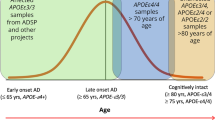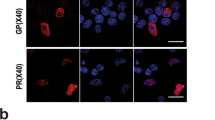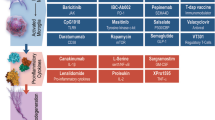Abstract
Amyotrophic Lateral Sclerosis (ALS), a debilitating neurodegenerative disorder is related to mutations in a number of genes, and certain genes of the Ribonuclease (RNASE) superfamily trigger ALS more frequently. Even though missense mutations in Angiogenin (ANG) and Ribonuclease 4 (RNASE4) have been previously shown to cause ALS through loss-of-function mechanisms, understanding the role of rare variants with a plausible explanation of their functional loss mechanisms is an important mission. The study aims to understand if any of the rare ANG and RNASE4 variants catalogued in Project MinE consortium caused ALS due to loss of ribonucleolytic or nuclear translocation or both these activities. Several in silico analyses in combination with extensive molecular dynamics (MD) simulations were performed on wild-type ANG and RNASE4, along with six rare variants (T11S-ANG, R122H-ANG, D2E-RNASE4, N26K-RNASE4, T79A-RNASE4 and G119S-RNASE4) to study the structural and dynamic changes in the catalytic triad and nuclear localization signal residues responsible for ribonucleolytic and nuclear translocation activities respectively. Our comprehensive analyses comprising 1.2 μs simulations with a focus on physicochemical, structural and dynamic properties reveal that T11S-ANG, N26K-RNASE4 and T79A-RNASE4 variants would result in loss of ribonucleolytic activity due to conformational switching of catalytic His114 and His116 respectively but none of the variants would lose their nuclear translocation activity. Our study not only highlights the importance of rare variants but also demonstrates that elucidating the structure-function relationship of mutant effectors is crucial to gain insights into ALS pathophysiology and in developing effective therapeutics.







Similar content being viewed by others
References
Abel O, Powell JF, Andersen PM, Al-Chalabi A (2012) ALSoD: a user-friendly online bioinformatics tool for amyotrophic lateral sclerosis genetics. Hum Mutat 33:1345–1351. https://doi.org/10.1002/humu.22157
Adzhubei IA, Schmidt S, Peshkin L, Ramensky VE, Gerasimova A, Bork P, Kondrashov AS, Sunyaev SR (2010) A method and server for predicting damaging missense mutations. Nat Methods 7:248–249. https://doi.org/10.1038/nmeth0410-248
Andersen PM, Al-Chalabi A (2011) Clinical genetics of amyotrophic lateral sclerosis: what do we really know? Nat Rev Neurol
Berendsen HJC, Postma JPM, Van Gunsteren WF et al (1984) Molecular dynamics with coupling to an external bath. J Chem Phys 81:3684–3690. https://doi.org/10.1063/1.448118
Brown RH, Al-Chalabi A (2017) Amyotrophic lateral sclerosis. N Engl J Med 377:162–172. https://doi.org/10.1056/NEJMra1603471
Cady J, Allred P, Bali T, Pestronk A, Goate A, Miller TM, Mitra RD, Ravits J, Harms MB, Baloh RH (2015) Amyotrophic lateral sclerosis onset is influenced by the burden of rare variants in known amyotrophic lateral sclerosis genes. Ann Neurol 77:100–113. https://doi.org/10.1002/ana.24306
Case DA, Babin V, Berryman JT et al (2014) Amber 14. University of California, San Francisco, CA
Choi Y, Chan AP (2015) PROVEAN web server: a tool to predict the functional effect of amino acid substitutions and indels. Bioinformatics. 31:2745–2747. https://doi.org/10.1093/bioinformatics/btv195
Chow CY, Landers JE, Bergren SK, Sapp PC, Grant AE, Jones JM, Everett L, Lenk GM, McKenna-Yasek DM, Weisman LS, Figlewicz D, Brown RH, Meisler MH (2009) Deleterious variants of FIG4, a phosphoinositide phosphatase, in patients with ALS. Am J Hum Genet 84:85–88. https://doi.org/10.1016/j.ajhg.2008.12.010
Chun S, Fay JC (2009) Identification of deleterious mutations within three human genomes. Genome Res 19:1553–1561. https://doi.org/10.1101/gr.092619.109
Crabtree B, Thiyagarajan N, Prior SH, Wilson P, Iyer S, Ferns T, Shapiro R, Brew K, Subramanian V, Acharya KR (2007) Characterization of human angiogenin variants implicated in amyotrophic lateral sclerosis. Biochemistry. 46:11810–11818. https://doi.org/10.1021/bi701333h
DeJesus-Hernandez M, Mackenzie IR, Boeve BF, Boxer AL, Baker M, Rutherford NJ, Nicholson AM, Finch NCA, Flynn H, Adamson J, Kouri N, Wojtas A, Sengdy P, Hsiung GYR, Karydas A, Seeley WW, Josephs KA, Coppola G, Geschwind DH, Wszolek ZK, Feldman H, Knopman DS, Petersen RC, Miller BL, Dickson DW, Boylan KB, Graff-Radford NR, Rademakers R (2011) Expanded GGGGCC Hexanucleotide repeat in noncoding region of C9ORF72 causes chromosome 9p-linked FTD and ALS. Neuron. 72:245–256. https://doi.org/10.1016/j.neuron.2011.09.011
Du Y, Wen Y, Guo X et al (2018) A genome-wide expression association analysis identifies genes and pathways associated with amyotrophic lateral sclerosis. Cell Mol Neurobiol 38:635–639. https://doi.org/10.1007/s10571-017-0512-2
Essmann U, Perera L, Berkowitz ML, Darden T, Lee H, Pedersen LG (1995) A smooth particle mesh Ewald method. J Chem Phys 103:8577–8593. https://doi.org/10.1063/1.470117
Ferraiuolo L, Kirby J, Grierson AJ, et al (2011) Molecular pathways of motor neuron injury in amyotrophic lateral sclerosis. Nat Rev Neurol
González-Pérez A, López-Bigas N (2011) Improving the assessment of the outcome of nonsynonymous SNVs with a consensus deleteriousness score, Condel. Am J Hum Genet doi 88:440–449. https://doi.org/10.1016/j.ajhg.2011.03.004
Greenway MJ, Alexander MD, Ennis S et al (2004) A novel candidate region for ALS on chromosome 14q11.2. Neurology. https://doi.org/10.1212/01.WNL.0000144344.39103.F6
Greenway MJ, Andersen PM, Russ G et al (2006) ANG mutations segregate with familial and “sporadic” amyotrophic lateral sclerosis. Nat Genet 38:411–413. https://doi.org/10.1038/ng1742
Hardiman O, Al-Chalabi A, Chio A, Corr Giancarlo Logroscino EM et al (2019) Amyotrophic lateral sclerosis. Prog Med Chem. https://doi.org/10.1016/bs.pmch.2018.12.001
Horn HW, Swope WC, Pitera JW, Madura JD, Dick TJ, Hura GL, Head-Gordon T (2004) Development of an improved four-site water model for biomolecular simulations: TIP4P-Ew. J Chem Phys 120:9665–9678. https://doi.org/10.1063/1.1683075
Huey R, Morris GM, Olson AJ, Goodsell DS (2007) Software news and update a semiempirical free energy force field with charge-based desolvation. J Comput Chem 28:1145–1152. https://doi.org/10.1002/jcc.20634
Humphrey W, Dalke A, Schulten K (1996) VMD: Visual molecular dynamics. J Mol Graph 14:33–38. https://doi.org/10.1016/0263-7855(96)00018-5
Krüger S, Battke F, Sprecher A, Munz M, Synofzik M, Schöls L, Gasser T, Grehl T, Prudlo J, Biskup S (2016) Rare variants in neurodegeneration associated genes revealed by targeted panel sequencing in a German ALS cohort. Front Mol Neurosci 9. https://doi.org/10.3389/fnmol.2016.00092
Leonidas DD, Shapiro R, Allen SC, Subbarao GV, Veluraja K, Acharya KR (1999) Refined crystal structures of native human angiogenin and two active site variants: implications for the unique functional properties of an enzyme involved in neovascularisation during tumour growth. J Mol Biol 285:1209–1233. https://doi.org/10.1006/jmbi.1998.2378
Li S, Sheng J, Hu JK, Yu W, Kishikawa H, Hu MG, Shima K, Wu D, Xu Z, Xin W, Sims KB, Landers JE, Brown RH, Hu GF (2013) Ribonuclease 4 protects neuron degeneration by promoting angiogenesis, neurogenesis, and neuronal survival under stress. Angiogenesis. 16:387–404. https://doi.org/10.1007/s10456-012-9322-9
Maier JA, Martinez C, Kasavajhala K, Wickstrom L, Hauser KE, Simmerling C (2015) ff14SB: improving the accuracy of protein side chain and backbone parameters from ff99SB. J Chem Theory Comput 11:3696–3713. https://doi.org/10.1021/acs.jctc.5b00255
Marangi G, Traynor BJ (2015) Genetic causes of amyotrophic lateral sclerosis: new genetic analysis methodologies entailing new opportunities and challenges. Brain Res 1607:75–93
McLaren W, Pritchard B, Rios D, Chen Y, Flicek P, Cunningham F (2010) Deriving the consequences of genomic variants with the Ensembl API and SNP effect predictor. Bioinformatics. 26:2069–2070. https://doi.org/10.1093/bioinformatics/btq330
Moroianu J, Riordan JF (1994) Identification of the nucleolar targeting signal of human angiogenin. Biochem Biophys Res Commun 203:1765–1772. https://doi.org/10.1006/bbrc.1994.2391
Moroianu J, Riordan JF (2006) Nuclear translocation of angiogenin in proliferating endothelial cells is essential to its angiogenic activity. Proc Natl Acad Sci 91:1677–1681. https://doi.org/10.1073/pnas.91.5.1677
Morris GM, Goodsell DS, Halliday RS, Huey R, Hart WE, Belew RK, Olson AJ (1998) Automated docking using a Lamarckian genetic algorithm and an empirical binding free energy function. J Comput Chem 19:1639–1662. https://doi.org/10.1002/(SICI)1096-987X(19981115)19:14<1639::AID-JCC10>3.0.CO;2-B
Mueller SC, Backes C, Haas J, INHERITANCE Study Group, Katus HA, Meder B, Meese E, Keller A (2014) Pathogenicity prediction of non-synonymous single nucleotide variants in dilated cardiomyopathy. Brief Bioinform 16:769–779. https://doi.org/10.1093/bib/bbu054
Narain P, Gomes J, Bhatia R, Singh I, Vivekanandan P (2017) C9orf72 hexanucleotide repeat expansions and Ataxin 2 intermediate length repeat expansions in Indian patients with amyotrophic lateral sclerosis. Neurobiol Aging 56:211.e9–211.e14. https://doi.org/10.1016/j.neurobiolaging.2017.04.011
Narain P, Pandey A, Gupta S, Gomes J, Bhatia R, Vivekanandan P (2018) Targeted next-generation sequencing reveals novel and rare variants in Indian patients with amyotrophic lateral sclerosis. Neurobiol Aging 71:265.e9–265.e14. https://doi.org/10.1016/j.neurobiolaging.2018.05.012
Ng PC, Henikoff S (2003) SIFT: predicting amino acid changes that affect protein function. Nucleic Acids Res 31:3812–3814
Padhi AK, Gomes J (2019) A molecular dynamics based investigation reveals the role of rare ribonuclease 4 variants in amyotrophic lateral sclerosis susceptibility. Mutat Res - Fundam Mol Mech Mutagen 813:1–12. https://doi.org/10.1016/j.mrfmmm.2018.11.002
Padhi AK, Hazra S (2019) Insights into the role of d-amino acid oxidase mutations in amyotrophic lateral sclerosis. J Cell Biochem 120:2180–2197. https://doi.org/10.1002/jcb.27529
Padhi AK, Kumar H, Vasaikar SV, Jayaram B, Gomes J (2012) Mechanisms of loss of functions of human angiogenin variants implicated in amyotrophic lateral sclerosis. PLoS One 7:e32479. https://doi.org/10.1371/journal.pone.0032479
Padhi AK, Jayaram B, Gomes J (2013a) Prediction of functional loss of human angiogenin mutants associated with ALS by molecular dynamics simulations. Sci Rep 3. https://doi.org/10.1038/srep01225
Padhi AK, Vasaikar SV, Jayaram B, Gomes J (2013b) Fast prediction of deleterious angiogenin mutations causing amyotrophic lateral sclerosis. FEBS Lett 587:1762–1766. https://doi.org/10.1016/j.febslet.2013.04.022
Padhi AK, Banerjee K, Gomes J, Banerjee M (2014a) Computational and functional characterization of angiogenin mutations, and correlation with amyotrophic lateral sclerosis. PLoS One 9:e111963. https://doi.org/10.1371/journal.pone.0111963
Padhi AK, Vasaikar S V, Jayaram B, Gomes J (2014b) ANGDelMut – a web-based tool for predicting and analyzing functional loss mechanisms of amyotrophic lateral sclerosis-associated angiogenin mutations. F1000Research. https://doi.org/10.12688/f1000research.2-227.v3
Padhi AK, Narain P, Dave U, Satija R, Patir A, Gomes J (2019) Insights into the role of ribonuclease 4 polymorphisms in amyotrophic lateral sclerosis. J Biomol Struct Dyn 37:116–130. https://doi.org/10.1080/07391102.2017.1419147
Pang SYY, Hsu JS, Teo KC, Li Y, Kung MHW, Cheah KSE, Chan D, Cheung KMC, Li M, Sham PC, Ho SL (2017) Burden of rare variants in ALS genes influences survival in familial and sporadic ALS. Neurobiol Aging 58:238.e9–238.e15. https://doi.org/10.1016/j.neurobiolaging.2017.06.007
Renton AE, Majounie E, Waite A, Simón-Sánchez J, Rollinson S, Gibbs JR, Schymick JC, Laaksovirta H, van Swieten JC, Myllykangas L, Kalimo H, Paetau A, Abramzon Y, Remes AM, Kaganovich A, Scholz SW, Duckworth J, Ding J, Harmer DW, Hernandez DG, Johnson JO, Mok K, Ryten M, Trabzuni D, Guerreiro RJ, Orrell RW, Neal J, Murray A, Pearson J, Jansen IE, Sondervan D, Seelaar H, Blake D, Young K, Halliwell N, Callister JB, Toulson G, Richardson A, Gerhard A, Snowden J, Mann D, Neary D, Nalls MA, Peuralinna T, Jansson L, Isoviita VM, Kaivorinne AL, Hölttä-Vuori M, Ikonen E, Sulkava R, Benatar M, Wuu J, Chiò A, Restagno G, Borghero G, Sabatelli M, Heckerman D, Rogaeva E, Zinman L, Rothstein JD, Sendtner M, Drepper C, Eichler EE, Alkan C, Abdullaev Z, Pack SD, Dutra A, Pak E, Hardy J, Singleton A, Williams NM, Heutink P, Pickering-Brown S, Morris HR, Tienari PJ, Traynor BJ (2011) A hexanucleotide repeat expansion in C9ORF72 is the cause of chromosome 9p21-linked ALS-FTD. Neuron. 72:257–268. https://doi.org/10.1016/j.neuron.2011.09.010
Renton AE, Chiò A, Traynor BJ (2014) State of play in amyotrophic lateral sclerosis genetics. Nat Neurosci 17:17–23
Reva B, Antipin Y, Sander C (2011) Predicting the functional impact of protein mutations: application to cancer genomics. Nucleic Acids Res 39:e118. https://doi.org/10.1093/nar/gkr407
Ribeiro JV, Tamames JAC, Cerqueira NMFSA, Fernandes PA, Ramos MJ (2013) Volarea - a bioinformatics tool to calculate the surface area and the volume of molecular systems. Chem Biol Drug Des 82:743–755. https://doi.org/10.1111/cbdd.12197
Roe DR, Cheatham TE (2013) PTRAJ and CPPTRAJ: software for processing and analysis of molecular dynamics trajectory data. J Chem Theory Comput 9:3084–3095. https://doi.org/10.1021/ct400341p
Rosen DR, Siddique T, Patterson D, Figlewicz DA, Sapp P, Hentati A, Donaldson D, Goto J, O'Regan JP, Deng HX, Rahmani Z, Krizus A, McKenna-Yasek D, Cayabyab A, Gaston SM, Berger R, Tanzi RE, Halperin JJ, Herzfeldt B, van den Bergh R, Hung WY, Bird T, Deng G, Mulder DW, Smyth C, Laing NG, Soriano E, Pericak–Vance MA, Haines J, Rouleau GA, Gusella JS, Horvitz HR, Brown RH (1993) Mutations in cu/Zn superoxide dismutase gene are associated with familial amyotrophic lateral sclerosis. Nature. 362:59–62. https://doi.org/10.1038/362059a0
Ryckaert JP, Ciccotti G, Berendsen HJC (1977) Numerical integration of the cartesian equations of motion of a system with constraints: molecular dynamics of n-alkanes. J Comput Phys 23:327–341. https://doi.org/10.1016/0021-9991(77)90098-5
Sanner MF (1999) Python: a programming language for software integration and development. J Mol Graph Model
Schwarz JM, Cooper DN, Schuelke M, Seelow D (2014) MutationTaster2: mutation prediction for the deep-sequencing age. Nat Methods 11:361–362. https://doi.org/10.1038/nmeth.2890
Shannon P, Markiel A, Ozier O et al (2003) Cytoscape: a software environment for integrated models of biomolecular interaction networks. Genome Res 13:2498–2504. https://doi.org/10.1101/gr.1239303
Sreedharan J, Blair IP, Tripathi VB et al (2008) TDP-43 mutations in familial and sporadic amyotrophic lateral sclerosis. Science (80- ). https://doi.org/10.1126/science.1154584
Terzyan SS, Peracaula R, De Llorens R et al (1999) The three-dimensional structure of human RNase 4, unliganded and complexed with d(Up), reveals the basis for its uridine selectivity. J Mol Biol 285:205–214. https://doi.org/10.1006/jmbi.1998.2288
Thiyagarajan N, Ferguson R, Subramanian V, Acharya KR (2012) Structural and molecular insights into the mechanism of action of human angiogenin-ALS variants in neurons. Nat Commun 3:1121. https://doi.org/10.1038/ncomms2126
Tripolszki K, Danis J, Padhi AK, Gomes J, Bozó R, Nagy ZF, Nagy D, Klivényi P, Engelhardt JI, Széll M (2019) Angiogenin mutations in Hungarian patients with amyotrophic lateral sclerosis: clinical, genetic, computational, and functional analyses. Brain Behav. https://doi.org/10.1002/brb3.1293
Van Blitterswijk M, Landers JE (2010) RNA processing pathways in amyotrophic lateral sclerosis. Neurogenetics
Van Rheenen W, Pulit SL, Dekker AM et al (2018) Project MinE: study design and pilot analyses of a large-scale whole-genome sequencing study in amyotrophic lateral sclerosis. Eur J Hum Genet 26:1537–1546. https://doi.org/10.1038/s41431-018-0177-4
Vance C, Rogelj B, Hortobágyi T et al (2009) Mutations in FUS, an RNA processing protein, cause familial amyotrophic lateral sclerosis type 6. Science (80- ). https://doi.org/10.1126/science.1165942
Vasaikar SV, Padhi AK, Jayaram B, Gomes J (2013) NeuroDNet - an open source platform for constructing and analyzing neurodegenerative disease networks. BMC Neurosci 14:3. https://doi.org/10.1186/1471-2202-14-3
Venselaar H, te Beek TAH, Kuipers RKP, Hekkelman ML, Vriend G (2010) Protein structure analysis of mutations causing inheritable diseases. An e-Science approach with life scientist friendly interfaces. BMC Bioinformatics https://doi.org/10.1186/1471-2105-11-548
Wu D, Yu W, Kishikawa H, Folkerth RD, Iafrate AJ, Shen Y, Xin W, Sims K, Hu GF (2007) Angiogenin loss-of-function mutations in amyotrophic lateral sclerosis. Ann Neurol 62:609–617. https://doi.org/10.1002/ana.21221
Acknowledgements
Aditya K. Padhi acknowledges Council of Scientific and Industrial Research (CSIR), Government of India for research fellowship. Priyam Narain is thankful to IIT Delhi for Senior Research Fellowship. Helpful suggestions from Prof B. Jayaram (IIT Delhi) are gratefully acknowledged.
Author information
Authors and Affiliations
Contributions
AKP; Collection of variants: PN; Analyzed the data: AKP, PN and JG; Contributed to the writing of the manuscript: AKP, PN and JG.
Corresponding authors
Ethics declarations
Conflict of interest
The authors declare no conflicts of interest.
Research involving in human and animal rights
This article does not contain any study with human or animal subjects performed by any of the authors.
Additional information
Publisher’s note
Springer Nature remains neutral with regard to jurisdictional claims in published maps and institutional affiliations.
Electronic supplementary material
ESM 1
(PDF 551 kb)
Rights and permissions
About this article
Cite this article
Padhi, A.K., Narain, P. & Gomes, J. Rare Angiogenin and Ribonuclease 4 variants associated with amyotrophic lateral sclerosis exhibit loss-of-function: a comprehensive in silico study. Metab Brain Dis 34, 1661–1677 (2019). https://doi.org/10.1007/s11011-019-00473-6
Received:
Accepted:
Published:
Issue Date:
DOI: https://doi.org/10.1007/s11011-019-00473-6




